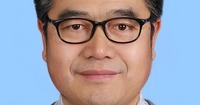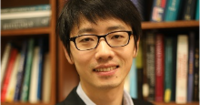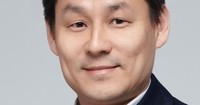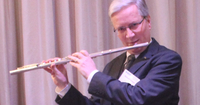Events & Talks
Robotic Materials
Talk
Prof. Zhanshan Wang
22-08-2024
Technologies of Thin Films for High-power Laser Systems
High-power laser systems significantly influence solutions for major scientific issues and high-tech industries. Thin films are one of the core components of advanced high-power laser systems. With the development of output power and application scenarios, high-power laser systems have to satisfy increasingly stringent requirements on the damage threshold, optical loss, and capabilities of optical field control for thin-film components of laser systems.
In terms of improving the laser damage threshold, we revealed a physical mechanism of "localized strong point", which will induce laser d...
Christoph Keplinger
Robotic Materials
Talk
Dr. Jianyu Li
18-03-2024
Bioadhesive Technologies with Mechanical Principles
Bioadhesive technologies are important in a wide range of applications, spanning from wound management to wearable technologies. Forming and controlling tough adhesion on biological tissues has been a long-lasting challenge, necessitating transdisciplinary approaches. In my talk, I will share our recent progress in the design, mechanics, and applications of tough bioadhesives. I will first discuss the limitations of clinically used surgical glues and blood clots in terms of adhesion properties. I will then present the mechanical principles for making tough bioadhesives that exhibit superior...
Christoph Keplinger
Adrian Koh
Robotic Materials
Talk
Prof. Dr. Kyu-Jin Cho
18-07-2023
Nature-inspired designs for innovating soft robotic grippers and prosthetics
In this talk, I will discuss the cutting-edge research conducted at our Soft Robotics Research Center and Biorobotics Lab, with an emphasis on the development of grippers and prosthetics inspired by the adaptive behaviors and embodied intelligence observed in nature. Traditional robots are designed for structured environments and navigate unstructured environments using sensors and intricate computation. To adapt to and flourish in unstructured environments, nature employs simple embodied intelligence, which does not necessarily require sensing or complex computation.
Christoph Keplinger
Metin Sitti
Robotic Materials
Talk
Prof. Dr. Stephan Rudykh
12-05-2023
Instability-driven Pattern Formations for Dynamically Tunable Functionalities in Soft Magneto-Active Materials
Nature actively uses sophisticated designs of microstructures to achieve astonishing material properties and functionalities. Thus, microstructures give rise to the incredible toughness of mother-of-pearl. Another example is an octopus, an amazingly effective soft machine created by nature. The creature can squeeze its whole body through an extremely narrow space while preserving a large variety of functionalities. The nature-created soft machine comprises highly deformable composites that are characterized by different dynamically tunable microstructures and phase properties, depending on ...
Christoph Keplinger
Xiying Li
Brian Johnson
Robotic Materials
Talk
Prof. Reimund Gerhard
25-07-2022
ELECTRETS (Dielectrics with quasi-permanent Charges or Dipoles) A long History and a bright Future
Electrets have a long history starting more 2600 years ago and a bright future in the areas of soft transducers, plastic electronics, radiation dosimeters, air filters, etc. From the beginning, the similarities, the differences, and the combinations of dielectric and magnetic materials, of positive and negative “electricities”, of internal hetero-charges and external homo-charges, etc. have been puzzling natural philosophers and scientists. At the same time, rather slow, but continuous progress in the understanding and the application of electrets has been made. Recently, the essential role...
Christoph Keplinger
Robotic Materials
Workshop
15-06-2022
- 18-06-2022
Shaping the Future of Robotics through Materials Innovation
The goal of this workshop is to bring together a group of international experts working at the intersection of materials science and robotics to discuss how materials innovation can shape the future of robotics. The workshop will feature invited talks that stimulate subsequent organized breakout sessions to discuss key future research themes and to set the course in the field. The meeting will take place at Castle Ringberg in the south of Germany, which offers an inspiring setting to discuss cutting edge research, to initiate new collaborations, and to reinvigorate existing connections.
Philipp Rothemund
Christoph Keplinger





